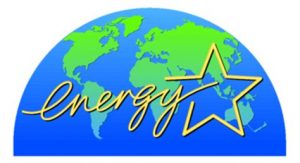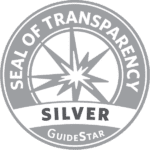My Green Doctor’s “Tip of the Month” Program
A powerful education step is to have one topic—a “Tip of the Month”—that is highlighted each Month by your office, clinic, bureau or outpatient facility. We offer many ideas for Tips below; your Green Team likely think of many others.
There are many ways to use your “Tip of the Month”; decide which communication methods are right for your office:
- A brief discussion at each office staff meeting: “Here is our Green Team Tip of the Month.”
- A brief mention to patients when seen by the nurse, nurse practitioner or doctor
- A short statement printed on the patient’s check-out paper work (the Electronic Health Record makes this easy to automate)
- A one-page handout provided in the waiting room, lunch room or examination rooms.
- A headline & and few sentences in your office newsletter that is sent to your office colleagues or to patients.
However you decide to share these Tips, keep the messages simple and easy to understand. Brag a bit about what your office is doing to create a cleaner office and healthier community!
Here are examples for your “Tip of the Month”:
A. From Your Action Steps: An Actions Step that your Green Team has already adopted makes an easy “Tip of the Month” because you already know this topic:
- Our Green Team Tip of the Month is Electricity. Our office minimizes our use of electricity in order to decrease air pollution that can harm your family and you. We set air conditioners to 74 degrees F. / 24 degrees C; and the heater to 68 degrees F/ 20 degrees C.
- Our Green Team Tip of the Month is recycling. Our office recycles. We encourage you to recycle in your home. This contributes to a healthier and cleaner community.
- Our Green Team Tip of the Month is Machines. Our office has a policy to turn of machines at night to save electricity and decrease air pollution: copiers, computers, fax machines, lights, fans and portable heaters.
- Our Green Team Tip of the Month is lightbulbs. We try to use LED lightbulbs (Low Emitting Diode) or CFB lightbulbs (Compact Fluorescent Bulbs) because they use less electricity and so create less air pollution. They save money as well. At home, look at the lightbulbs you use. Consider installing motion detectors that turn off lights when no one is in the room. Remember to return to your hardware store any burned-out CFBs. This type of lightbulb contains a small amount of mercury, a neurotoxin. Your store can dispose of these safely.
- Our Green Team Tip of the Month is hand washing. Washing hands needs only soap, water, and rubbing the hands together. Choose an inexpensive hand soap that does not contain triclosan or other anti-bacterial chemicals. These chemicals are not needed, are expensive, may be toxic to people, and are harmful to the environmental. Hot water is not needed, so save money and energy use by sticking with cold water.
Here are other examples. You can easily add a few sentences:
- Our Green Team Tip of the Month is recycled paper.
- Our Green Team Tip of the Month saving paper.
- Our Green Team Tip of the Month is Styrofoam.
- Our Green Team Tip of the Month is… (Pick from your list of Action Steps)
B. from My Green Doctor’s Workbooks: My Green Doctor (www.mygrendoctor.org) contains seven workbooks with more than 120 Action Steps. Each Step is a brief topic that can become a “Tip of the Month” in less than 5 minutes. Here are some examples:
- Our Green Team Tip of the Month Heater & AC Maintenance: Home heaters and air conditioners need to be checked regularly to save money, avoid indoor air toxins, and to help the natural environment. Check your system air filters at least every three months to see if they need to be replaced or cleaned. Have these machines checked once a year if advised by the manufacturer.
- Our Green Team Tip of the Month is insulation. Adding insulation to your home or business saves money, avoids air pollution from the burning of fossil fuels, and keeps your family comfortable. Check your insulation and add a layer if possible. Adding insulation foam to the attic or basement is expensive but usually worth the investment. Your local utility company may have suggestions, and even discounts on insulation products. Check those windows that may be leaking heat: consider adding protective caulking, add plastic covering to block ultraviolet light, or even replacing old windows.
- Our Green Team Tip of the Month is Energy Star. Energy Star is a program of the United States Department of Energy that gives an Energy Star rating to appliances and other equipment that use less energy. Other rating systems are offered in other parts of the world, clearly marked on the product labels. These appliance may cost a bit more, but this is paid for in a short time with for lower energy costs in a short time. And less harmful air pollution as less fossil fuels are burned, so buy only Energy Star appliances.
- Our Green Team Tip of the Month is solar hot water. If you need a new hot water heater and you have a roof, solar is likely the way to go. Millions of solar hot water heaters (also called “solar thermal”) are in use around the world. Many countries and utility companies offer discounts and tax-breaks to people who buy these. After a few years, your heater is paid for and you will have a decade or more of free hot water.
- Our Green Team Tip of the Month is using outdoor water wisely. If you have an irrigation system on your property, adjust the watering to be appropriate for your climate (usually no more than two watering per Month). Reduce the water times if possible, and certainly reduce them in the rainy season and in winter. Use low-flow sprinkler head. Use directional sprinklers to narrow the focus of the water sprays. Consider an ultra-low flow drip system. Once a year, check for leaks. (Additional “Tip”: prints for your office waiting room copies of our free brochures, “Outdoor Water Tips”: https://mygreendoctor.es/resources/waiting-room-brochures/ ).
- Our Green Team Tip of the Month is avoiding bottled water. In most parts of the world, the community tap water from your home faucet is your best choice. Bottled water is expensive, wasteful, and is less rigorously tested for safety than many public water supplies. Eliminating bottled water saves money, saves electricity, and averts a lot of solid waste. Of course, you can only do this if your town’s public water supply is safe to drink. (Additional “Tip”: prints for your office waiting room copies of our free brochures, “Choose Tap Water”: https://mygreendoctor.es/resources/waiting-room-brochures/ ).
C. Patient Care Tips: These “Tips” are particularly useful to share with patients in the examination rooms. These tips focus on the direct threats to your patients from climate change and pollution. Health professionals around the world are beginning to add topics such as these to their daily patient encounters, in the same manner that they may talk with patients about subjects like nutrition, exercise, tobacco and seatbelts:
- Our Green Tip of the Month is planning for storms. Is your family prepared for storms? Every household should set aside a supply of one Month of food and water in case the power is cut or you must evacuate. How safe is your home from storms, floods, or giant waves (tsunamis)? Do you have a plan for where you will go, how you will communicate, or where you will meet if your family members become separated during a disaster?
- Our Green Tip of the Month is extreme heat events. Most parts of the world are now experiencing every year a few days of extremely hot weather. Some of these can be severe and life-threatening. Children, people with breathing problems, and the elderly are especially vulnerable. When this occurs, you need a stay indoors and stay hydrated. Being prepared includes having a safe, air conditioned space to go to if your home becomes unsafe.
- Our Green Tip of the Month is walking. Walking helps your health and can help the environment. Walking even a few minutes a day, instead of driving, make a big difference. Take a walk today!
- Our Green Tip of the Month is drug disposal. How can you safely dispose of old medicines that you no longer use? Never flush medicines or pour them in the sink, as the medicines end up in our rivers, lakes, oceans and water supplies. This is true also for non-prescription herbal products and vitamins. Discard medications in your household trash or return them to your pharmacy.
- Our Green Tip of the Month is sun safety. We want you to enjoy the health benefits of being outdoors, but also to be safe. Remember to apply sunscreen creams to exposed skin, wear a hat, and use sunglasses or prescription glasses with ultraviolet (UV) protection to help prevent sun damage to the eyes (melanoma cancers and cataracts).
- Our Green Tip of the Month is going meatless. Your need protein, but some proteins are healthier for you and for the environment. Proteins from plants (soy, grains), milk, yogurt, cheese, eggs, fish, shellfish and poultry are the best. Far less healthy for you and for the climate are the “red meats”, those from animals with four legs (beef, pork, goat, lamb). Why not start by “going meatless” one day each Month? (Additional “Tip”: a fact-filled website is provided by the non-profit group, Physicians Against Red Meat: Pharm.org .)
Our Green Tip of the Month is saying “no” to mosquitos. As the climate warms, mosquitos are thriving, bringing the increased risk of severe illnesses from protozoans (like malaria) and from viruses (like dengue, Zika, & West Nile). With planning, no one in your family will ever again be bitten by a mosquito. Begin by removing any standing water from around your house such as in pots or old tires. Install mosquito screens on your windows and doors. If you have mosquitos indoors, sleep under a mosquito net, preferably a net treated with insecticide. Wear dark clothing that covers your arms, legs, and head as much as possible. Avoid going outdoors between 5pm and 7pm when mosquitos are most likely to bite. Finally, apply to all exposed skin a chemical mosquito protectant. The best tested, safe and least expensive is DEET (N,N-Diethyl-meta-toluamide; diethyltoluamide). DEET also keeps away ticks, fleas, chiggers, leeches and many other biting insects!
- There are great jobs and scholarships in the “green economy”–tell your colleagues, patients and families: For a healthier community and planet, we need for our brightest, most creative people to consider the hundreds of careers available to help the environment. Around the worlds are university scholarships, fellowships, and great jobs. You can print this paragraph to share it with your families, neighbors and teachers. Here is an easy-to-read website that explains some of the amazing opportunities: https://www.learnhowtobecome.org/green-careers/ .




